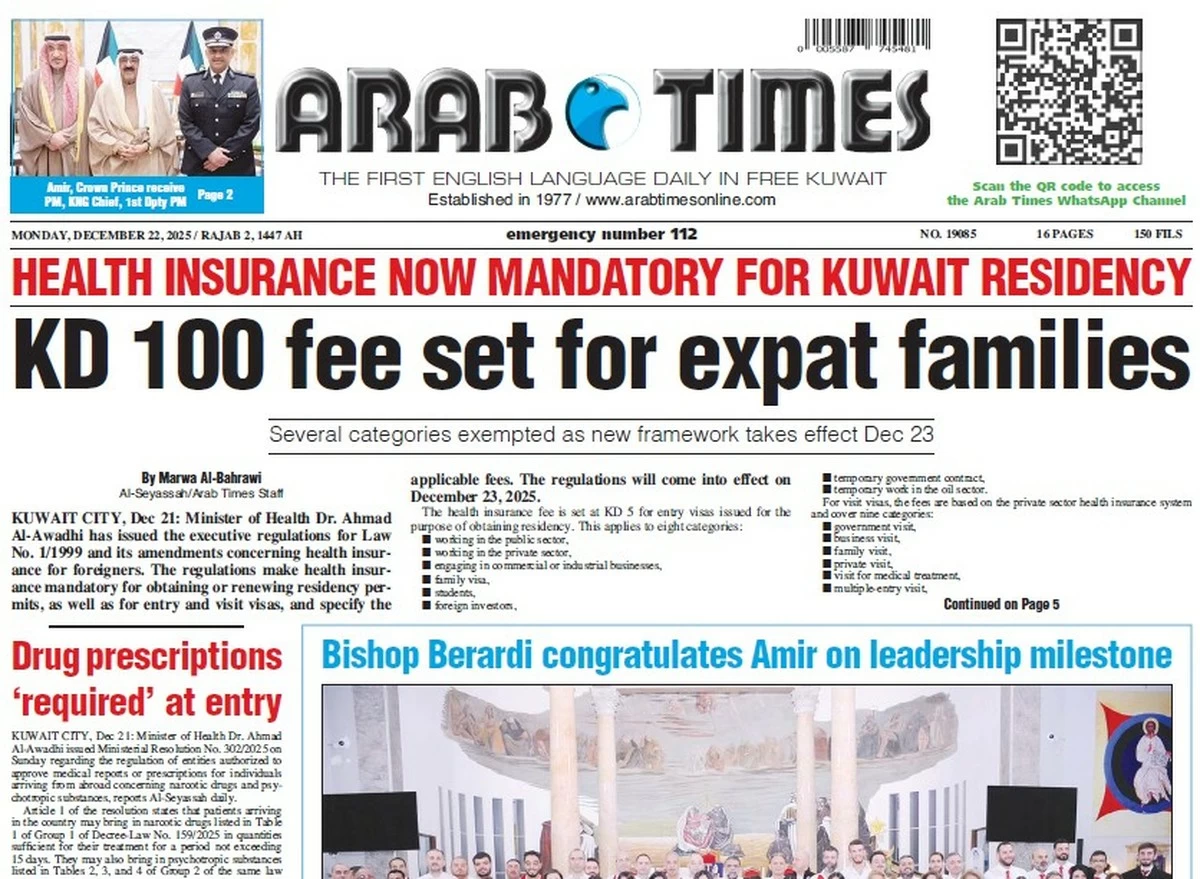23/02/2025
23/02/2025
THE College of Life Sciences, which has an unusual name, was established in 2003. Initially, it was called the University College for Girls. Since its inception, the college has experienced instability, and its identity has remained unclear. According to the colleges website , its goal is to prepare graduates with the competence and skills needed to “lead and challenge” in order to contribute to a better future for the country. The college aims to meet the demands of the Kuwaiti labor market by offering vital specializations related to life and society, designed according to the highest scientific standards and international academic accreditation. It focuses on fields such as environmental technology management, food sciences, and more, and develops academic programs that equip graduates with the ability to compete, demonstrate leadership skills, and exhibit creativity - rhetoric that even the most prestigious universities may not claim.
The College of Life Sciences comprises four academic departments: - Department of Food and Nutrition Sciences: This department offers a Bachelor’s degree in Food Science, a Bachelor’s degree in Nutrition, and a Master’s degree in Food Science and Nutrition. - Department of Communication Disorders Sciences. - Department of Environmental Technology Management: This department provides both Bachelor’s and Master’s degrees. - Department of Information Sciences: This department offers Bachelor’s and Master’s degrees. The college did not start with these departments, rather, departments were added, transferred, or abolished over time. For example, the Department of Family Sciences, which may have been relevant when the college was exclusively for women, was eventually discontinued. Education specialists argue that there is no real need for this college, as its departments could easily be integrated into other colleges. However, to avoid causing any controversy, it could be attached to Abdullah Al-Salem University.
The issue discussed in this article is not only related to the “unsettling” situation of the College of Life Sciences but also stems from a circular issued by the acting dean of the college. The circular prohibits holding exams at the college during the last ten days of the upcoming month of Ramadan, justifying this decision by claiming it would benefit the students and allow them to focus on worship while taking into account the challenges they may face during Ramadan due to fasting and staying up late. While I am not opposed to such measures when they are implemented by the relevant university authorities at a broader level, I find it concerning that they were issued by the deanship of a specific college. This creates undesirable administrative confusion. I suspect that this dean, if the circular is indeed true, might not have taken such action had it not been for a professor in the College of Education who previously canceled all exams for the entire semester and granted all students “full marks” in celebration of the “revolutionaries” entering Damascus and overthrowing the regime of dictator Bashar al-Assad. If this was proven to be true, and had the university taken action at the time by questioning that professor, no one else would have felt empowered to act as they pleased. I tried to reach the acting dean of the College of Life Sciences, but he did not respond to either my calls or my text messages. I hope this article reaches the administration of Kuwait University and prompts them to prevent the issuance of such individual decisions with a religious undertone in colleges that are meant to be scientific . Such actions also hurt the university’s future ranking.
By Ahmad alsarraf
email: [email protected]



